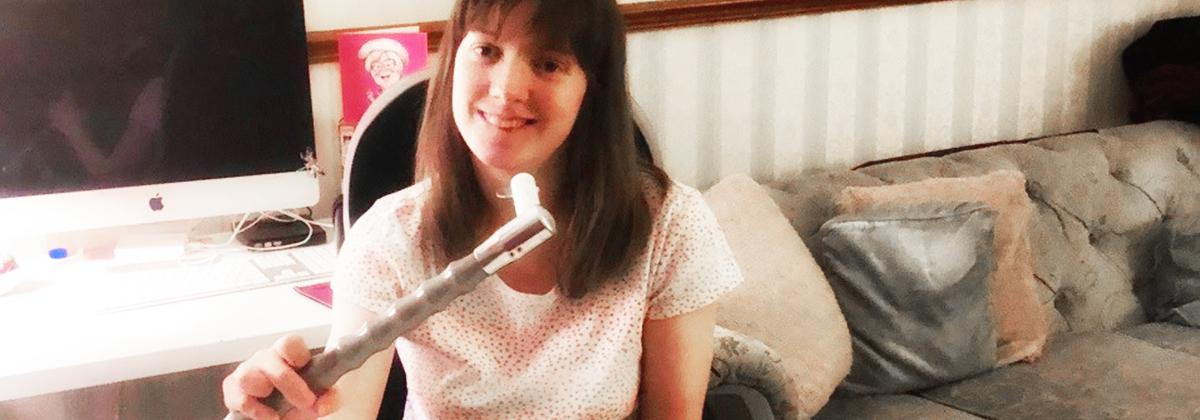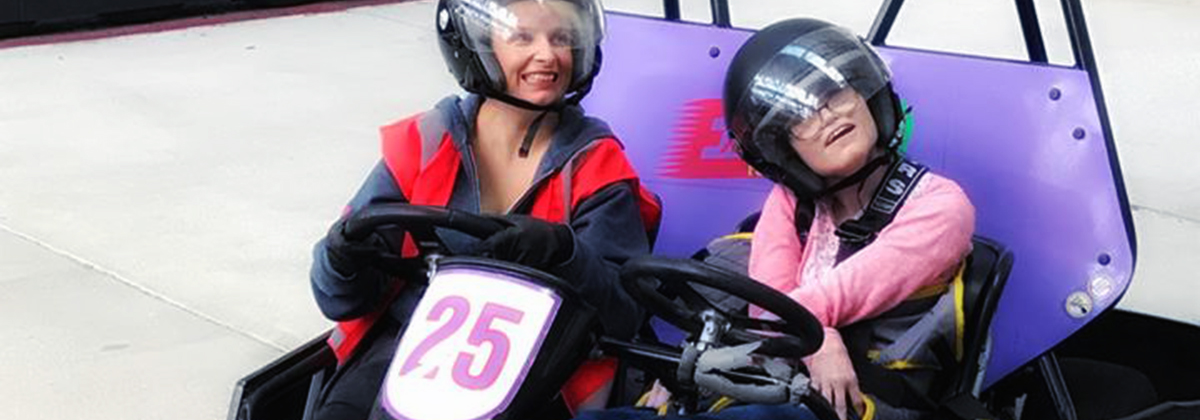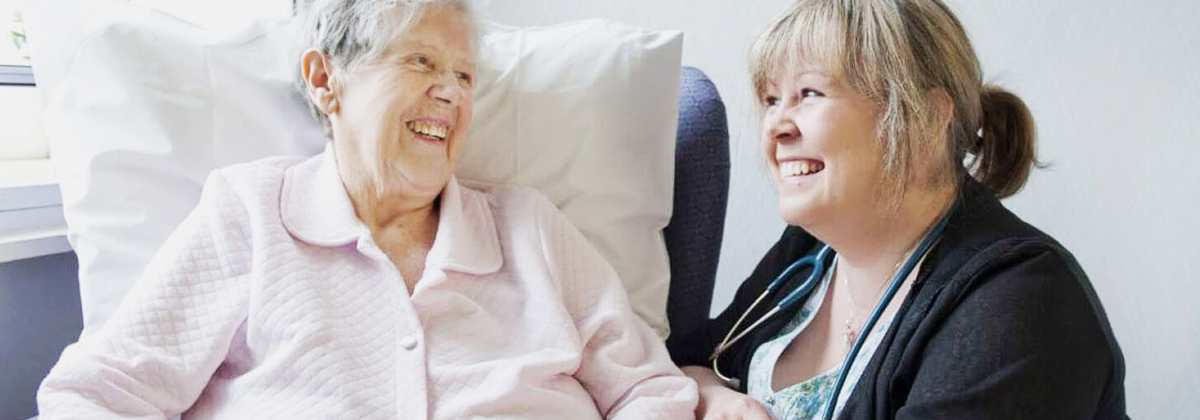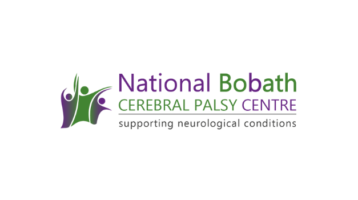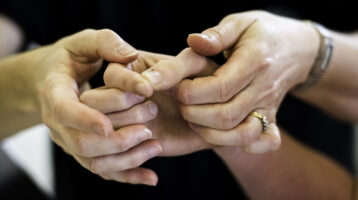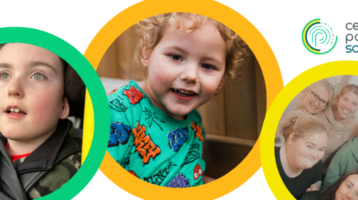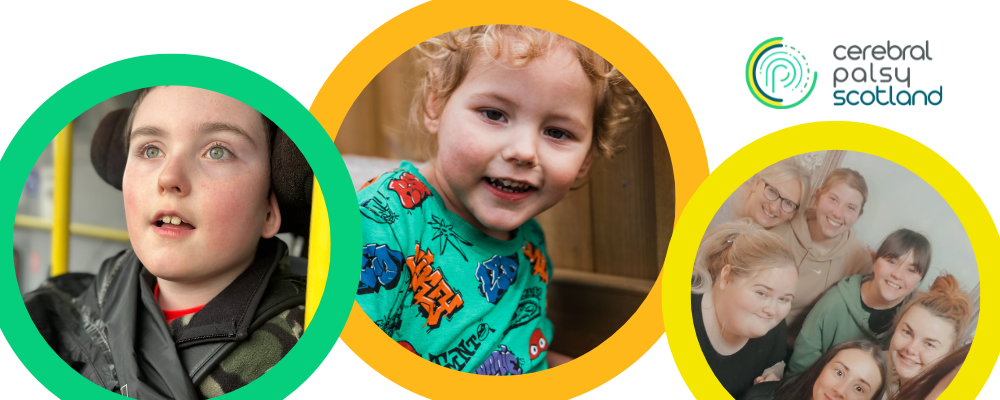CP is a lifelong condition. While the original injury to the brain doesn’t get worse over time, this doesn’t mean CP is a ‘static’ condition that never changes.
As a person with CP grows, they can develop secondary problems with their muscles or skeleton, such as dislocations and increased tightness in muscles and joints. This can change a person’s physical abilities over time. People can also experience problems with pain and fatigue as they grow older.
It is important for everyone to stay active, maintain mobility, reduce loss of function and avoid or reduce pain. This is especially true for those who have cerebral palsy.
Ageing with cerebral palsy
Everyone’s body deteriorates with age, yet many are not aware that people who have cerebral palsy can experience premature ageing or additional health issues as a result of growing older.
Working with a specialist therapist can highlight potential difficulties which can then be addressed before they happen, before they develop further, or to reduce the impact of such.
What changes in early adulthood?
Children with cerebral palsy have usually had access to a range of medical, therapy and education professionals. This level of access can decrease when a person transitions from child to adult services.
Becoming an adult can also mean big life changes, such as starting college or university or looking for a job.
Wherever life leads it is important that young adults with cerebral palsy keep track of their condition and continue building good support networks around them.
Make sure your equipment and aids are still right for you
A common issue for young adults with CP is continuing to use equipment or aids that worked well for them as teenagers but that over time have been subject to wear and tear and need readjustment or replacing.
Having transitioned from children’s services (where equipment is routinely reviewed) to adult services, the responsibility now lies with the adult (or their carers) to monitor and request any review of equipment, aids and orthotics. You can request a review if you have not had one for a long time, or think you need one.
The benefits of continuing therapy in early adulthood
Regular therapy can help:
- Get to the root of problems being identified
- Provide individualised ideas on activities/exercises in order to remain well physically and mentally
- Maintain strength
- Maintain levels of mobility
- With feeling ‘looser’ and more flexible
- Reduce pain caused by sitting at a computer or being in a wheelchair for long periods
- Maintain current function and stop or slow the rate of things ‘getting worse’.
- Improve stamina and overall sense of wellbeing
- Improve confidence
- Problem-solve issues regarding the use of aids and orthotics
- Identify suitable equipment and/or advice on adjustments to current equipment
How Cerebral Palsy Scotland can help
Find out how Cerebral Palsy Scotland supports adults with CP by providing therapy and other services.
Our Annual Self Check can help identify areas where changes are beginning to happen and help with deciding if it’s time to get some advice or help.
Supporting your transition into adulthood
The charity Contact manage a transitions website, Talking About Tomorrow, which has been developed with parents, for parents. It is a guide through the journey to adulthood for disabled young people in Scotland.
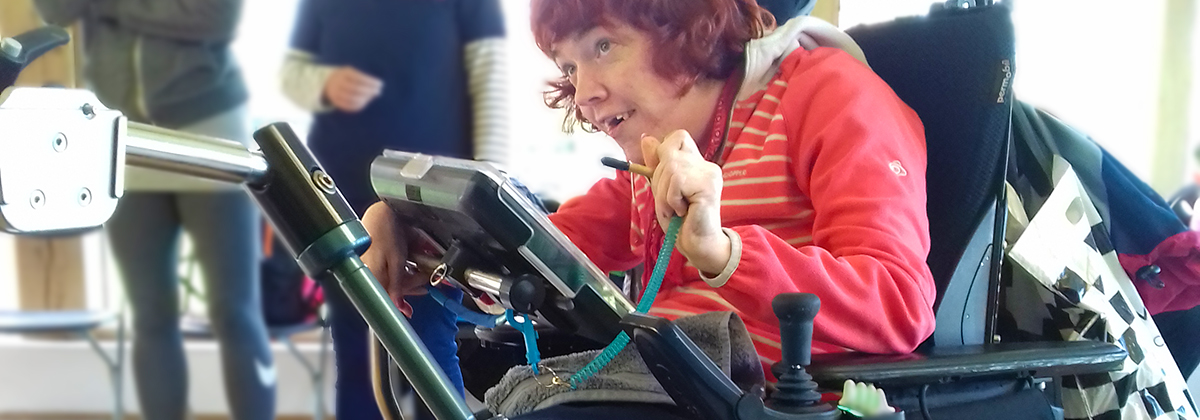
Everyone’s body gradually deteriorates with age. This is known as ‘primary ageing’ and can include a person developing conditions such as diabetes and blood pressure issues.
‘Secondary ageing’ is the term given to other factors known to affect the rate of ageing. This can include lifestyle factors, such as diet and the amount of exercise we take. It is now known that living with a lifelong condition such as cerebral palsy causes secondary ageing. This is thought to be due to a combination of the physical and emotional demands over time.
Adults with CP can start noticing changes in their ability or development of additional health issues earlier than others. For some, this can occur in their mid-thirties (occasionally earlier), and for others, it happens in their forties and fifties.
With the right input, a lot can be done to manage these changes and to maintain levels of function and comfort, such as learning how to do things differently, how to loosen stiff areas or how to conserve energy.
Read about Kirsty's experience as an adult living with cerebral palsy.
Potential physical changes for adults with CP
Changes in mobility: Altered postures and altered movement patterns can sometimes result in rapid changes to mobility. Stiffness, walking and balance issues are common in mid-life.
Reduced physical strength: If you don’t use muscles regularly, strength reduces, stiffness increases and there is an increased risk of injury. Where muscle tone is already lower, muscles can become weaker and prone to injury or deformity. People often stop moving because they find it uncomfortable or painful.
Reduced balance: Alignment is important for balance. Muscle stiffness and loss of strength affects alignment and reduces ability to balance. Walking also depends on a good foot position and alignment of feet and ankles – any changes in this will impact ability to mobilise.
Pain: Chronic pain, and the implications of it, can be a big issue for adults with cerebral palsy. It can stop people from doing the things they love. Tensing up in anticipation of pain can affect movement, motivation to move and general well-being.
Co-ordination: Amongst other things, good co-ordination is dependent on a combination of good range of movement, alignment, sufficient physical strength and practice. Where one of these components is lacking, it will influence overall function.
Fatigue: Fatigue/exhaustion is closely linked to the efficiency of movement. If the effort of doing something is too high in relation to energy available, it can cause fatigue. Some people notice this occurring as early as their mid-20s to early 40s.
Higher risk of osteoporosis: Bone density depends on a number of factors including weight-bearing, diet and medication. People who have cerebral palsy are more at risk of reduced bone density due to factors such as reduced opportunities for active weight-bearing and/or taking certain medication. Reduced bone density makes a person more susceptible to injury as they age.
Sleep disturbance: Sleep pattern can be affected as a result of discomfort/pain or changes in being able to assume a good/aligned position at night.
Mental well-being: Having CP can mean dealing with accelerated ageing at an earlier stage. It is easy to focus on physical changes but it is also important to consider the mind. Frustration, anxiety, or a sense of isolation can be experienced by anybody at any time:
Reduced concentration: Ability to focus on a task can be influenced by factors such as pain, anxiety or even the need for significant physical effort.
Sense of loss: Losing the ability to do something you previously managed can be incredibly frustrating and upsetting.
Social isolation: Social isolation can result due to reduced contact with people at key stages of life, such as finishing school or moving house, or as a result of difficulty finding suitable employment or leisure opportunities. For some, it can be due to a deterioration in mobility or confidence in getting out and around the local community.
What can I do to stay well?
Consider therapy: People often presume they cannot recover their ability to do something. Often with the right therapy input, they can regain some, or all, of these skills. Alternatively, there may be other ways of achieving what is important to them.
If pain or other factors are stopping you doing something it’s also important to seek help. Doing nothing increases the risk of losing muscle strength. Regular therapy and exercise can make a positive difference.
Get the right equipment/orthotics: Some people find they need mobility aids as they grow older. Others have used aids/equipment for some time that initially worked very well but that require adjustments. Having an item of equipment like a wheelchair, mobility aid, or orthotics, is only helpful if it is the right item at a given time and adjusted to (changing) needs. You can request a review if you have not had one for a long time.
How Cerebral Palsy Scotland can help
Find out how Cerebral Palsy Scotland supports adults with CP by providing therapy and other services.
Our Annual Self Check can help identify areas where changes are beginning to happen and help with deciding if it’s time to get some advice or help.
Read Elaine's story and her experience of getting therapy from Cerebral Palsy Scotland as an adult.
National Institute for Health and Care Excellence
NICE the National Institute for Health and Care Excellence have created Quality Standards - CP in adults.
NICE quality standards describe high-priority areas for improvement in a defined care or service area. Each standard consists of a prioritised set of specific, concise and measurable statements. NICE quality standards draw on existing NICE or NICE accredited guidance that provides an underpinning, comprehensive set of recommendations, and are designed to support the measurement of improvement.
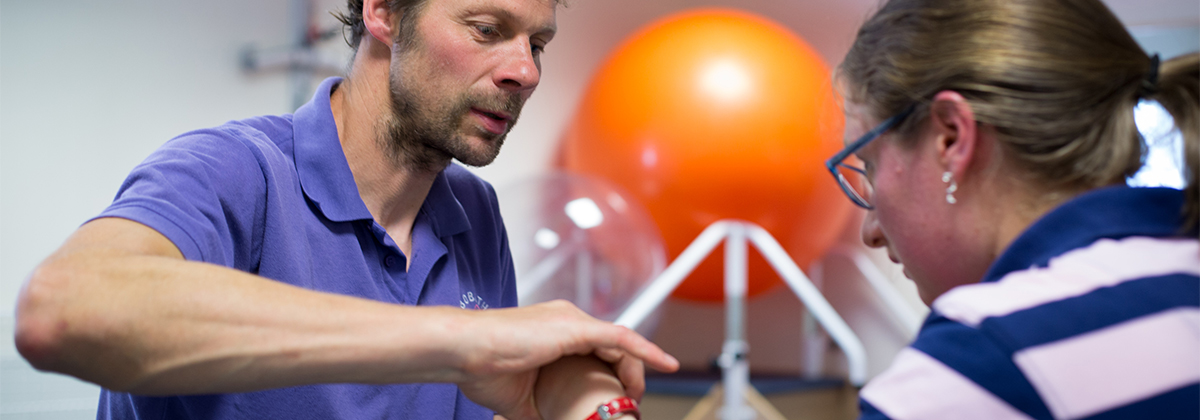
What changes in mid-life?
A new job, new equipment, becoming a parent, a new house… there are plenty of new challenges during mid-life.
For a person with cerebral palsy, changes in mid-life can also include the challenge of having to manage pain that wasn’t there before, adapting to different personal assistants, or changing abilities, including no longer being able to do something.
It is important to know how to manage the specific ways in which CP affects a person as they get older.
Consider therapy
Few people have ready access to regular therapy in their 30s and 40s. However, therapy can help with mobility, can reduce pain and can help people find ways of doing what is important to them. Working with a therapist can provide individualised advice regarding appropriate types of exercise to maintain fitness, stamina and strength.
Manage stress
Stress can easily become a regular feature in many people’s lives. For adults with CP, stress can impact function in a number of ways. For example, increased muscle tone or stiffness may result in making it harder or more uncomfortable to move.
It is helpful to identify the sources of stress. Work stress? Stress associated with getting to work? Having a new personal assistant? Concerns regarding changes in ability or worries about the future? Whatever the cause – explore ways of finding a solution.
How Cerebral Palsy Scotland can help
Find out how Cerebral Palsy Scotland supports adults with CP by providing therapy and other services.
Our Annual Self Check can help identify areas where changes are beginning to happen and help with deciding if it’s time to get some advice or help.
What changes for over 50s?
Before the 1950s, few people with cerebral palsy survived into adulthood. Now 65% to 90% of children with cerebral palsy survive and have a normal life expectancy.
As you grow older it’s important to recognise that the effects of your cerebral palsy will change both physically, and psychologically.
Carrying out physical tasks and activities can become more difficult as you get older and require more time and energy compared with when you were younger. You may worry more about falling and breaking something or your ability to get back up again.
As you get older you may also experience social changes, including feeling:
- More vulnerable
- Less able to manage tasks without assistance
- That tasks take longer and use more energy to complete
- Your concentration decreases
- Your confidence levels change
- You may worry more about going out.
To find out more about ageing with CP, read the 2013 report, ‘Ageing with a lifelong condition. The experience and perception of older people with cerebral palsy.’
How Cerebral Palsy Scotland can help
The key to leading a healthy life well into old age is to look after mind and body. After all, one keeps the other strong.
Find out how Cerebral Palsy Scotland supports adults with CP by providing therapy and other services.
Our Annual Self Check can help identify areas where changes are beginning to happen and help with deciding if it’s time to get some advice or help.
Jackie’s story
Read Jackie’s story to see how he benefitted from therapy at an older age.
Healthy relationships
In a study of young adults aged 20 to 24 with CP, 35% of people revealed they would like more information about the impact their condition could have on their sexuality and fertility. A further 26% said they’d like to know more about treatment options, and 14% said they like to know how to discuss their sexuality with a partner.
Having CP certainly doesn’t mean you can’t enjoy an active sex life or go on to have a family if that’s what you choose to do.
If you’re experiencing problems or you’re worried about any aspect of your sex life, relationship or your ability to have a family, it’s important to talk to someone about your worries. Talk to your GP or a health professional just as you would with a concern over any other area of your life - there are nearly always ways to start addressing your concerns. As well as practical help, your GP may also be able to refer you on to a specialist such as a gynaecologist, physiotherapist, sex therapist or relationship counsellor.
Potential physical problems
As with all other aspects of life, everyone’s experience of CP is different. You may experience no physical limitations at all, or an aspect of your condition may mean you have to make some adjustments so that your relationship with your partner is the best it can be.
Not everyone experiences problems, but here are some you may encounter:
- Spasticity, difficulties with positioning
- Stiffness of joint and muscles
- Problems with energy and fatigue
- Balance problems or loss of strength
- Trembling
- Problems with pelvic floor tone
Talk to your GP in the first instance about what solution is right for you. The good news is that sex is a form of exercise and has beneficial effects on both spasticity and stiffness, not to mention the positive effect overall relaxation has on the body.
Changing how you feel
Finding a new partner and maintaining a healthy relationship is never easy, but you may feel your cerebral palsy gives you one more challenge to overcome. Talking builds trust in any relationship. So, it’s important to recognise that if you’re feeling worried or anxious it’s OK to feel that way, and you owe it to yourself to look for solutions.
Sexual Health Scotland has some good advice here on how to start the conversation about sex with a partner. Or, you may find it useful to talk to someone from your local family planning clinic. Don’t forget your GP is also there to help connect you to specialists who might be able to offer practical help. It’s worth it, as being open and honest with any partner will only bring you closer.
Cerebral palsy and pregnancy
Your CP needn’t hold you back if your dream is to have a family. If you are concerned about becoming pregnant or any aspect of being a parent the best thing to do is to speak with your GP. An occupational therapist, for instance, can help you prepare for the baby’s arrival, breaking down baby care activities into tasks that you feel comfortable with and can practice.
Read Elaine’s story
Read Kirsty’s story
Further information
Sexual Health Scotland: Information and advice about sex and relationships plus search for local help in your area.
Sandyford Clinic: is the specialist sexual health service for NHS Greater Glasgow and Clyde
Themix.org: Essential advice for the under 25s. Includes advice on Dating and disabilities as well as Sex when you’re disabled.
Dating clubs: There are several online dating sites for disabled people, including The Outsiders Club.
I have cerebral palsy. This is how I have sex: Personal experience article from VICE.
Enabled2Parent: A charity that supports parents with disabilities or additional needs
As a woman with cerebral palsy, this is what I wish I knew before getting pregnant and becoming a mother: Personal experience article from Glamour magazine
DisAbility Maternity Care: Not UK-based. This charity was established to provide women with a disability, their partners and family, information and resources to support and assist them to become parents.
At Cerebral Palsy Scotland we’re ambitious for every person with cerebral palsy. Please find out more about our Annual Self-Check, and our other services for adults with cerebral palsy.
